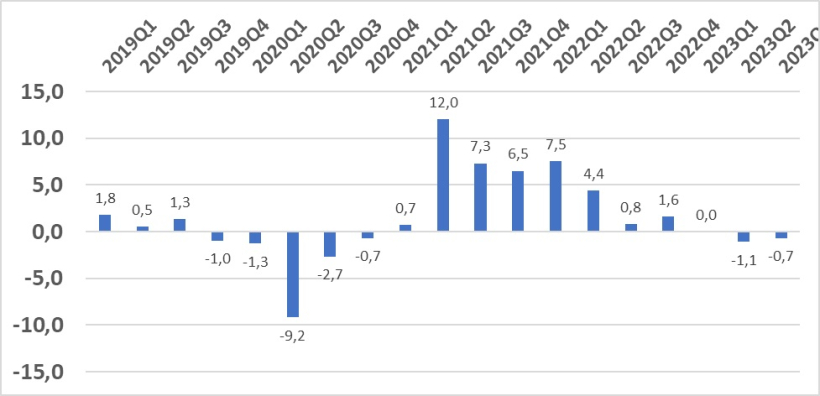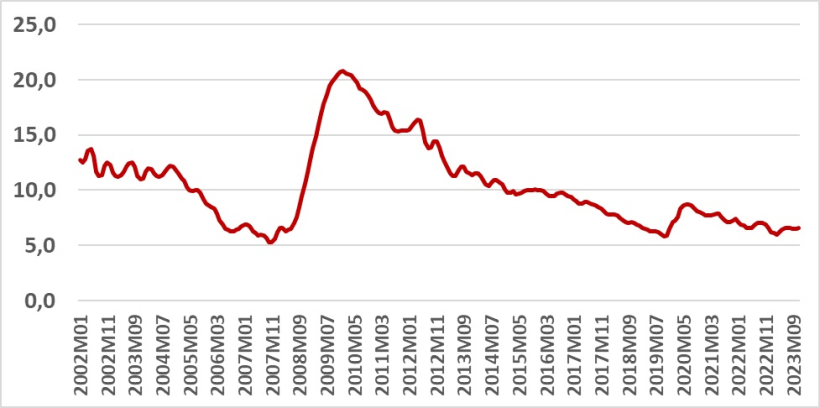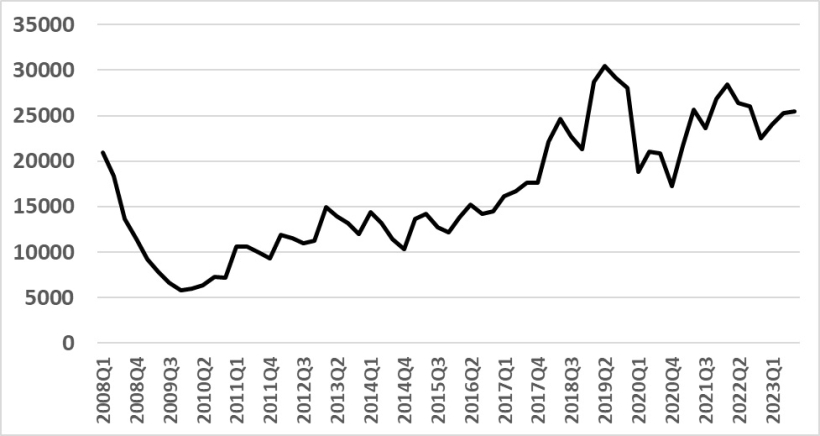
Ilustratīvs attēls no Pixabay.com
Sorry for this clickbait – Latvia is not in what should be called “an economic crisis” but that is what an overwhelming majority of the population thinks, according to a recent survey, which I saw reported in LETA news on 5 January 2024. The results of the survey, reported by Luminor bank, looked like this:
Source: LETA news 5 January 2024
So, 82% think we are in an economic crisis whereas only 1% disagrees. But what does the economic data say?
Indeed, Latvia is in a recession, which is typically defined as at least two quarters in a row with negative economic growth and this is fulfilled since both the 2nd and the 3rd quarters of 2023 displayed negative economic growth (data for the 4th quarter is still not available), see Figure 1.
But we are talking about very minimal declines of GDP of just around one per cent on an annual basis. We can also use the graph to expand on this by noting that the economy has seen next-to-nothing in terms of growth for the past five quarters.
But to me this not constitute a crisis.
I will even argue that a) I am quite content with this slow GDP development and b) that the negative impact on Latvia has been minimal, given the negative forces that are behind it.
Figure 1: Economic growth in Latvia, year-on-year, quarterly data, 2019 Q1 – 2023 Q3
Source: Official Statistics Portal of Latvia
Consider the latter point: Factors, that have negatively affected Latvia’s economy are a) Russia’s war in Ukraine, b) lost exports to Russia (and Belarus) – although some of these find their way to Russia anyway via Turkey or Kazakhstan, c) recession in several of our main trading partners (Estonia, Sweden, Germany, other parts of the Eurozone), d) higher interest rates due to tighter monetary policy by the ECB, high inflation (in 2021-22; not now) that eroded our purchasing power. Given this cocktail of negative factors, I actually find it quite amazing that the economy is not harder hit.
The former point; why I am not too unhappy about the slow growth/small recession, relates to the labour market. We are in a strange situation without economic growth to speak of but the labour market remains super-strong with unemployment at very low levels, see Figure 2. It is very seldom that recession goes hand in hand with a very strong labour market but that is indeed the case today. Higher growth would have required more labour; labour that is not available.
Figure 2: Unemployment rate in Latvia, 2002-I – 2023-XI
Source: Official Statistics Portal of Latvia
This is also supported by Figure 3. The number of vacant jobs in Latvia remains very high. More than 25,000 job openings cannot be filled. The labour market remains very tight indeed.
Figure 3: Number of vacant jobs in Latvia, 2008 Q1 – 2023 Q3
Source: Official Statistics Portal of Latvia
So, by all means speak of a shallow recession in the economy but to use the term “economic crisis” about the current economic situation is, in my opinion, way too dramatic.
Morten Hansen is Head of Economics Department at Stockholm School of Economics in Riga and former Vice-Chairman of the Fiscal Discipline Council of Latvia


















